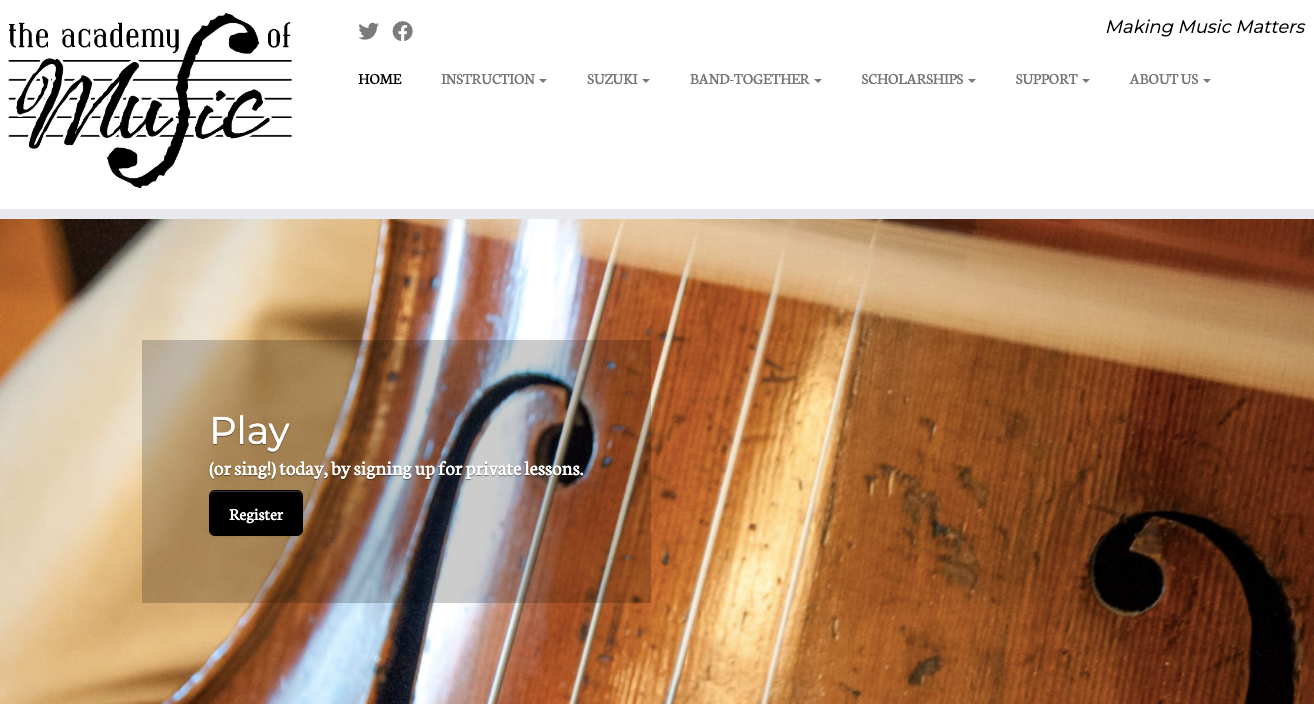Norfolk, Virginia is home to a thriving music scene, with a rich history of producing talented musicians and singers. Whether you are an aspiring vocalist or a seasoned performer, there are many singing and voice lessons available in the area to help you refine your skills and reach your full potential.
In this article, we will explore the 10 best singing and voice lessons near Norfolk, Virginia. We have researched and compiled a list of highly rated instructors and schools that offer a variety of vocal training programs, including private lessons, group classes, and workshops.
Each instructor on our list has a unique approach to teaching and specializes in different areas of vocal technique, such as breathing, pitch control, tone quality, and stage presence. We have also taken into consideration factors such as affordability, location, and student reviews to ensure that our recommendations are accessible and effective.
Whether you are interested in classical singing, musical theater, pop, or jazz, you are sure to find a vocal coach on our list who can help you achieve your goals and take your singing to the next level. So, without further ado, let’s dive in and discover the best singing and voice lessons near Norfolk, Virginia!
1. Academy of Music

Website: http://www.aomva.org/
Address: 1709 Colley Ave # 302, Norfolk, VA 23517, United States
The Academy of Music is a well-established music school located in the heart of Norfolk, Virginia. Since its founding in 1991, the Academy has been dedicated to providing high-quality music education to students of all ages and skill levels. The school offers a wide range of private lessons and group classes in various instruments, including piano, guitar, violin, and voice.
One of the Academy’s strengths is its team of highly qualified and experienced instructors, who are all accomplished musicians in their own right. They are committed to helping each student achieve their musical goals through personalized instruction and a supportive learning environment.
The Academy also hosts regular recitals and performances, providing students with opportunities to showcase their talents and gain performance experience. With a convenient location, flexible scheduling, and a welcoming atmosphere, the Academy of Music is an excellent choice for anyone looking to explore their passion for music in Norfolk, Virginia.
2. Music Theory Studios

Website: http://www.musictheorystudios.com/
Address: 253 Monticello Ave Suite 444, Norfolk, VA 23510, United States
Music Theory Studios is a music school located in downtown Norfolk, Virginia. The school specializes in providing high-quality music theory education to students of all ages and levels of experience. Their mission is to empower musicians to understand the fundamental principles of music and apply them to their playing and songwriting.
The school offers a variety of classes and programs, including music theory classes, composition lessons, and songwriting workshops. The instructors at Music Theory Studios are experienced musicians and educators, who are dedicated to providing a comprehensive and engaging learning experience for their students.
One of the unique features of Music Theory Studios is their use of technology in the classroom. The school utilizes state-of-the-art software and hardware to provide students with a modern and interactive learning experience. Additionally, the school provides students with access to recording equipment and facilities, enabling them to record their compositions and performances.
With a convenient location and a focus on music theory education, Music Theory Studios is an excellent choice for anyone looking to deepen their understanding of music and improve their skills as a musician.
3. The Governor’s School For The Arts

Website: http://www.gsarts.net/
Address: 254 Granby St, Norfolk, VA 23510, United States
The Governor’s School for the Arts (GSA) is a prestigious institution located in downtown Norfolk, Virginia. The school is dedicated to providing a rigorous and comprehensive arts education to talented high school students from across the state.
GSA offers a variety of programs in several disciplines, including music, theater, visual arts, dance, and film. The school’s music program is particularly notable, with offerings in instrumental and vocal music, music theory, and composition.
The faculty at GSA consists of highly qualified and experienced artists and educators, who are dedicated to helping students achieve their full potential. The school’s curriculum is designed to provide students with a well-rounded arts education, encompassing both technical skill and artistic expression.
In addition to their academic curriculum, GSA offers students a variety of performance and exhibition opportunities, including concerts, recitals, and gallery shows. With a beautiful campus located in the heart of downtown Norfolk, and a commitment to excellence in the arts, the Governor’s School for the Arts is a top choice for serious young artists looking to further their education and pursue a career in the arts.
Tips for Learning How to Sing
Singing is a beautiful and powerful form of self-expression. Whether you are a beginner or an experienced singer, there is always room for improvement and growth. Learning how to sing can be a rewarding and enjoyable process, but it can also be challenging. In this article, we will provide some tips for learning how to sing and improving your vocal technique.
Find a Good Vocal Coach
One of the most important steps in learning how to sing is finding a good vocal coach. A vocal coach can help you develop good habits, correct bad habits, and provide personalized feedback and guidance. Look for a vocal coach who has experience working with singers of all levels, and who has a teaching style that is compatible with your learning style. It is also important to find someone who makes you feel comfortable and confident.
Warm Up Your Voice
Before you start singing, it is important to warm up your voice. This will help prevent injury and improve your vocal range and flexibility. Some good warm-up exercises include humming, lip trills, and vocal sirens. Start with gentle exercises and gradually increase the intensity and complexity of the exercises as your voice warms up.
Practice Good Posture
Good posture is essential for good singing technique. Stand up straight with your shoulders relaxed and your feet shoulder-width apart. Keep your chin level and your head centered over your body. This will help you breathe more easily and sing with more power and control.
Breathe Properly
Proper breathing technique is essential for good singing. Take deep breaths, filling your lungs completely with air, and breathe from your diaphragm. This will help you sing with more power and control, and prevent strain and tension in your throat and vocal cords.
Practice Consistently
Consistent practice is key to improving your singing skills. Set aside time each day to practice your singing, even if it is just for a few minutes. This will help you build good habits and improve your vocal technique over time. It is also important to practice a variety of different songs and styles, to challenge yourself and keep things interesting.
Listen to Your Voice
One of the best ways to improve your singing is to listen to your voice. Record yourself singing, and listen back to the recording to identify areas for improvement. This will help you develop your ear and improve your pitch accuracy and tone quality. It can also be helpful to listen to recordings of professional singers and try to emulate their techniques and style.
Experiment with Different Styles
Don’t be afraid to experiment with different styles of singing. Try singing different genres of music, such as pop, rock, jazz, or classical. This will help you develop your versatility and find your unique voice. It can also be helpful to try singing in different languages, to improve your pronunciation and diction.
Take Care of Your Voice
Taking care of your voice is essential for maintaining good vocal health. Drink plenty of water, and avoid caffeine and alcohol, which can dry out your throat and vocal cords. Avoid smoking, which can damage your vocal cords and reduce your lung capacity. It is also important to get enough rest, and avoid straining your voice by yelling or speaking loudly for extended periods of time.
Have Fun!
Learning how to sing can be a challenging process, but it should also be enjoyable and fun. Don’t take yourself too seriously, and allow yourself to make mistakes and experiment with your voice. Singing should be a joyful and liberating experience, so enjoy the journey and don’t worry too much about the destination.
In conclusion, learning how to sing is a rewarding and challenging process that requires dedication, patience, and practice. By following these tips, you can improve your vocal technique, expand your range and repertoire, and develop your unique.

